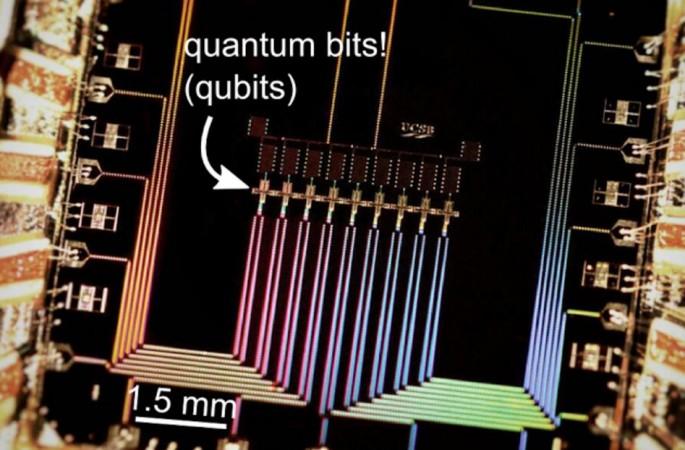
Google is on track to develop a powerful chip, which is claimed to be a quantum computing breakthrough if an ongoing research at the company pays off.
The search engine giant is currently testing a 20-qubit quantum computing processor, which is the company's most powerful quantum chip yet. However, Google is aiming for a 49-quibt chip by the end of 2017, which will make the company the first to build a quantum computer capable of solving problems that are out of reach for conventional computers.
Qubits, or quantum bits, are the basic units in quantum computing that hold bits of information. Unlike traditional computers that store information in binary bits whose value can be either 1 or 0, qubits can be a combination of 0 and 1 at the same time. It's this ability of photons to exist in multiple states at any time that allows quantum computing perform operations much quicker than conventional machines.
The revelation about Google's progress was made by Alan Ho, an engineer in Google's quantum AI lab, at a quantum computing conference in Munich earlier this week. Ho, however, said that error-corrected quantum computers are unlikely to arrive before 2027, according to reports in New Scientist.
Ho's team is currently working on a 20-qubit processor having "two-qubit fidelity" of 99.5 per cent -- a measurement of errors made by the chip. A high rating equates to fewer errors.
The ambitious 49-qubt chip that Google is aiming for will have a two-qubit fidelity of at least 99.7 percent, a level the company previously described as "quantum supremacy." Until now, Google's only publicly-confirmed quantum success story is a 9-qubit machine, which was built in 2015.
In a research paper published in July 2016, Google's engineers detailed their goal of achieving quantum supremacy, which, according to them, would lead to the first quantum computer capable of performing tasks beyond the abilities of classical computers.

While Google is targeting a 49-qubit quantum chip, a consortium of famous universities and private companies is expected to design, build and test powerful 100-qubit quantum machines. The Intelligence Advanced Research Projects Activity (IARPA) has selected University of Southern California (USC) to lead the consortium to build quantum computers that could be 10,000 times faster than state-of-the-art modern computers.
In May, IBM also announced that it had constructed a prototype commercial quantum processor with 17 qubits, which would be the basis for the first IBM Q early-access commercial systems.

















